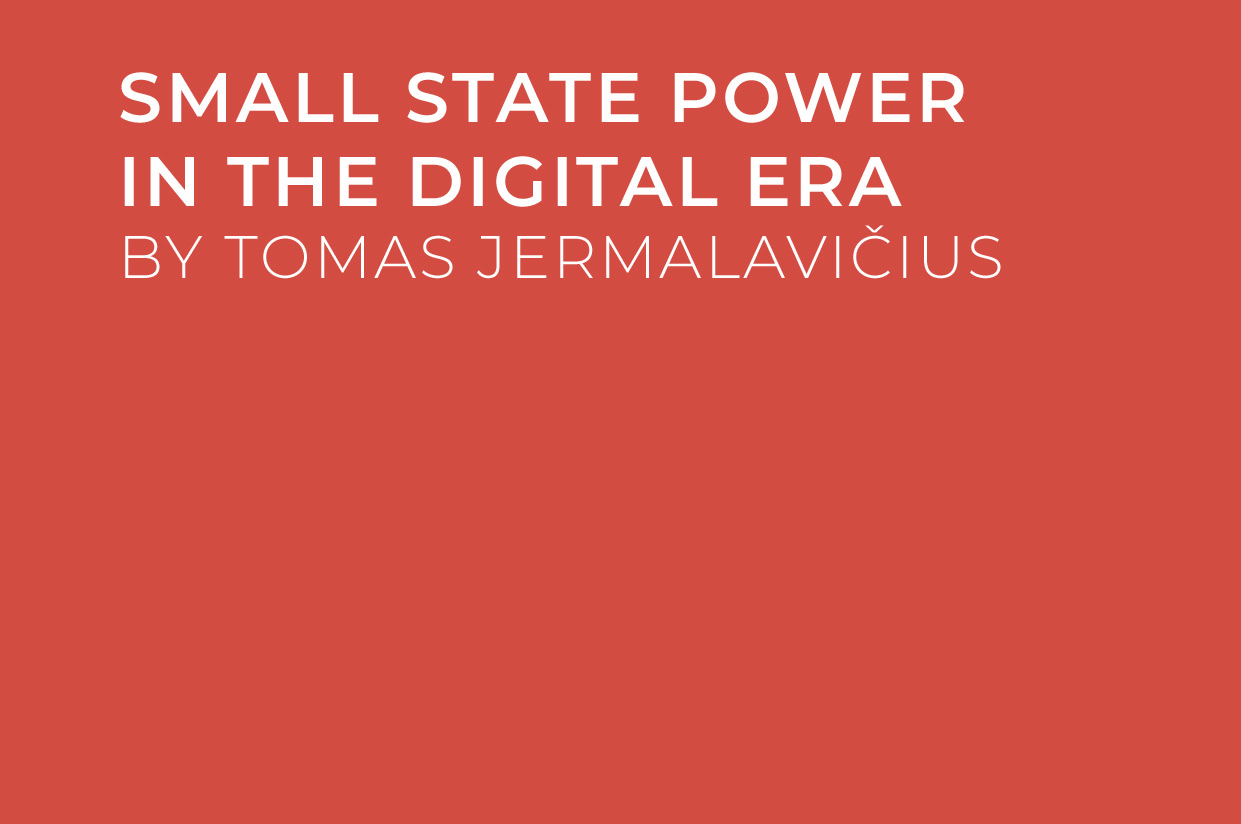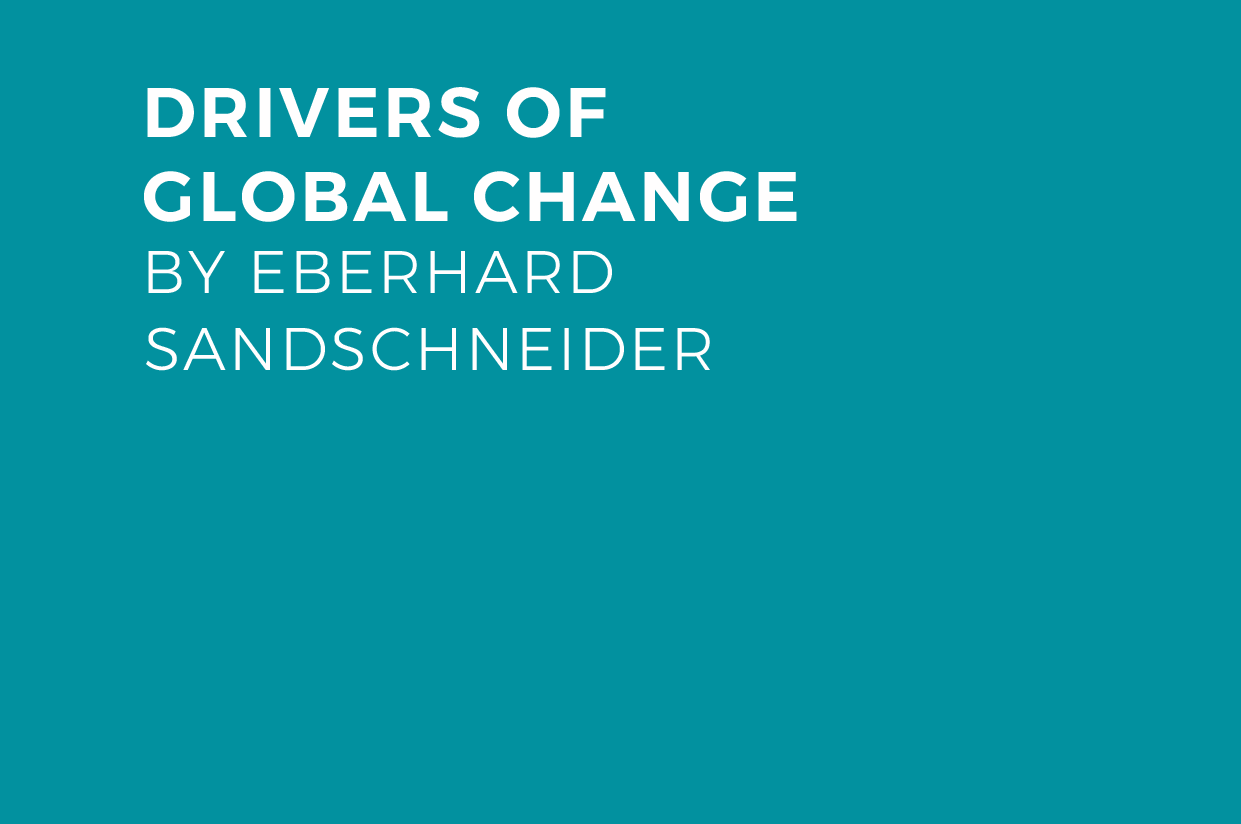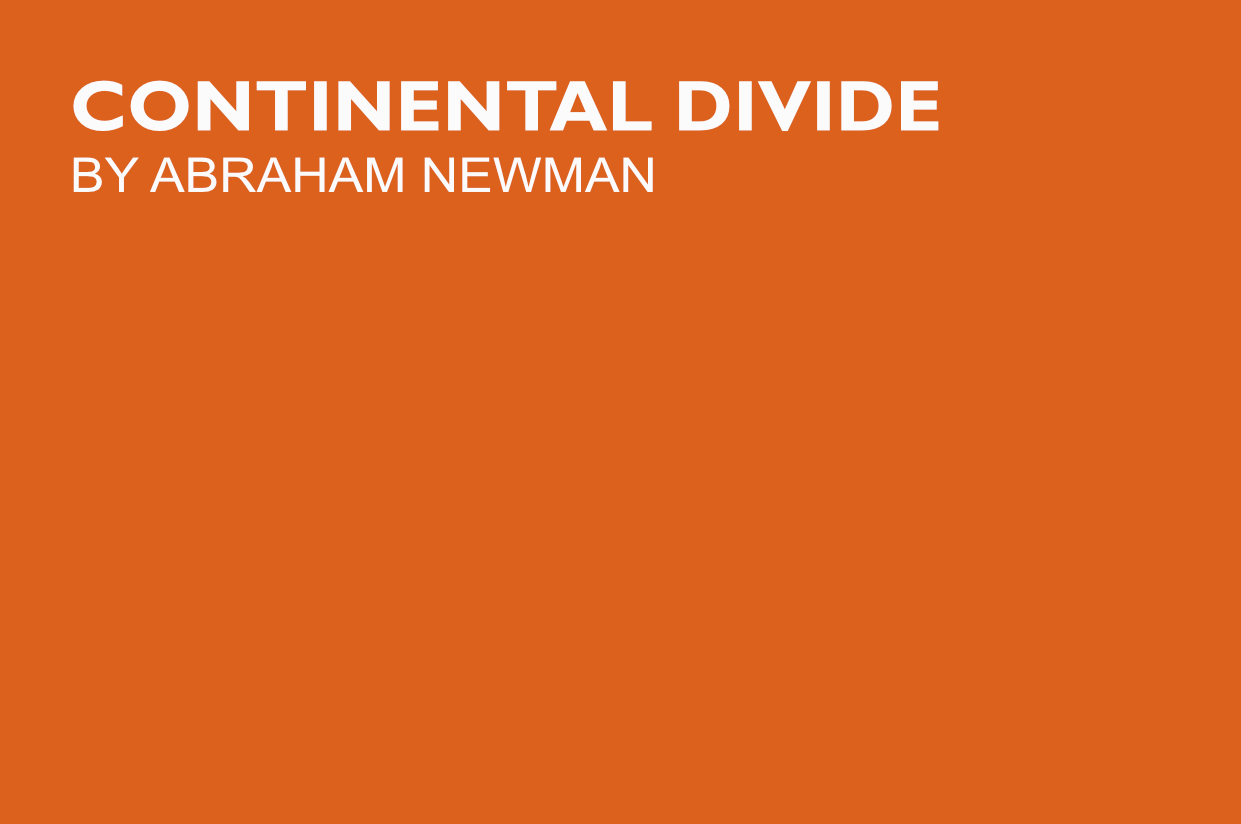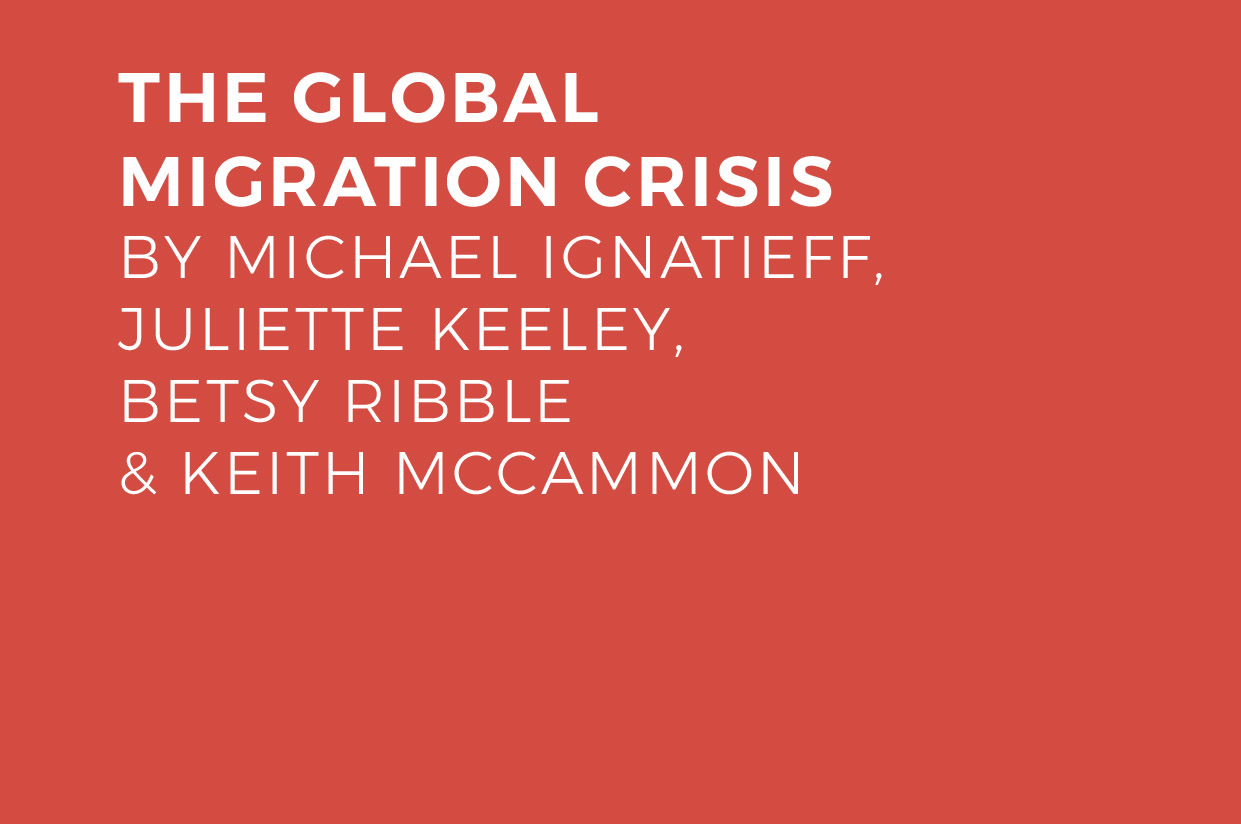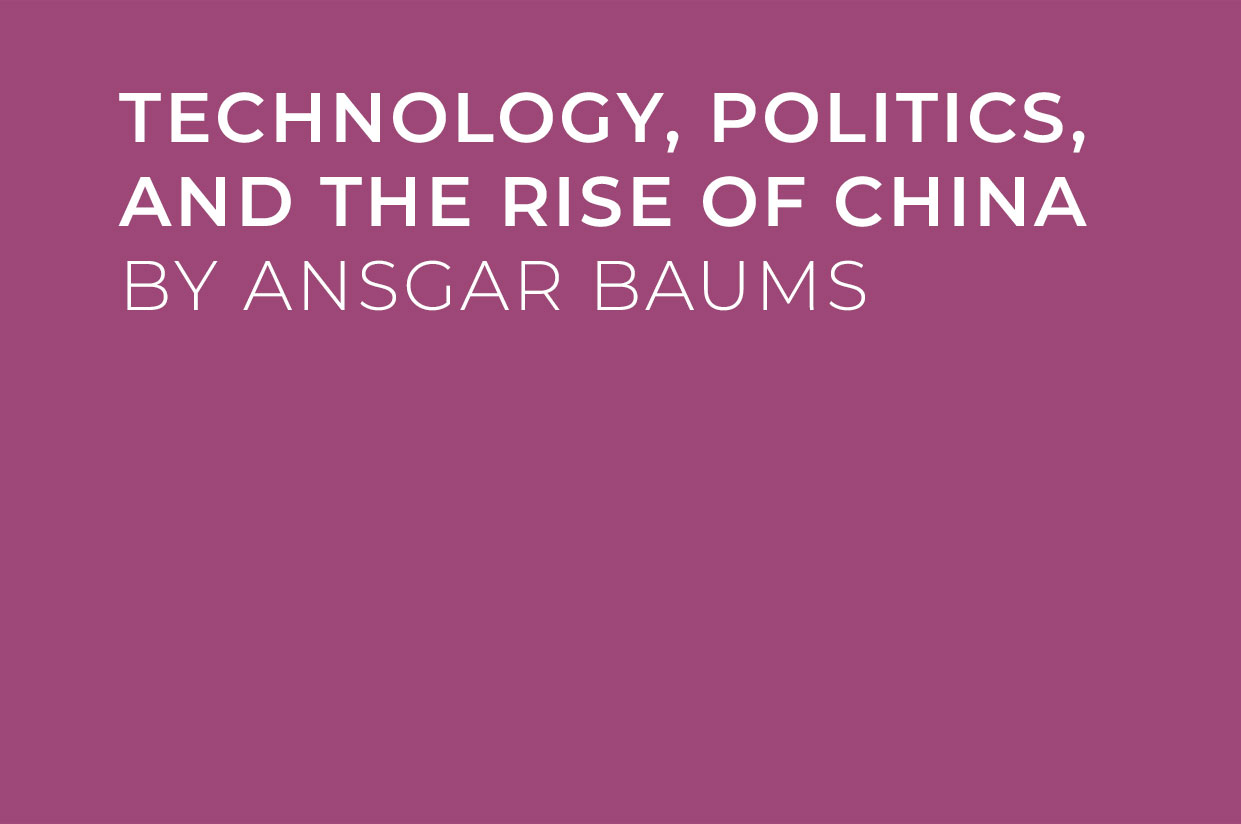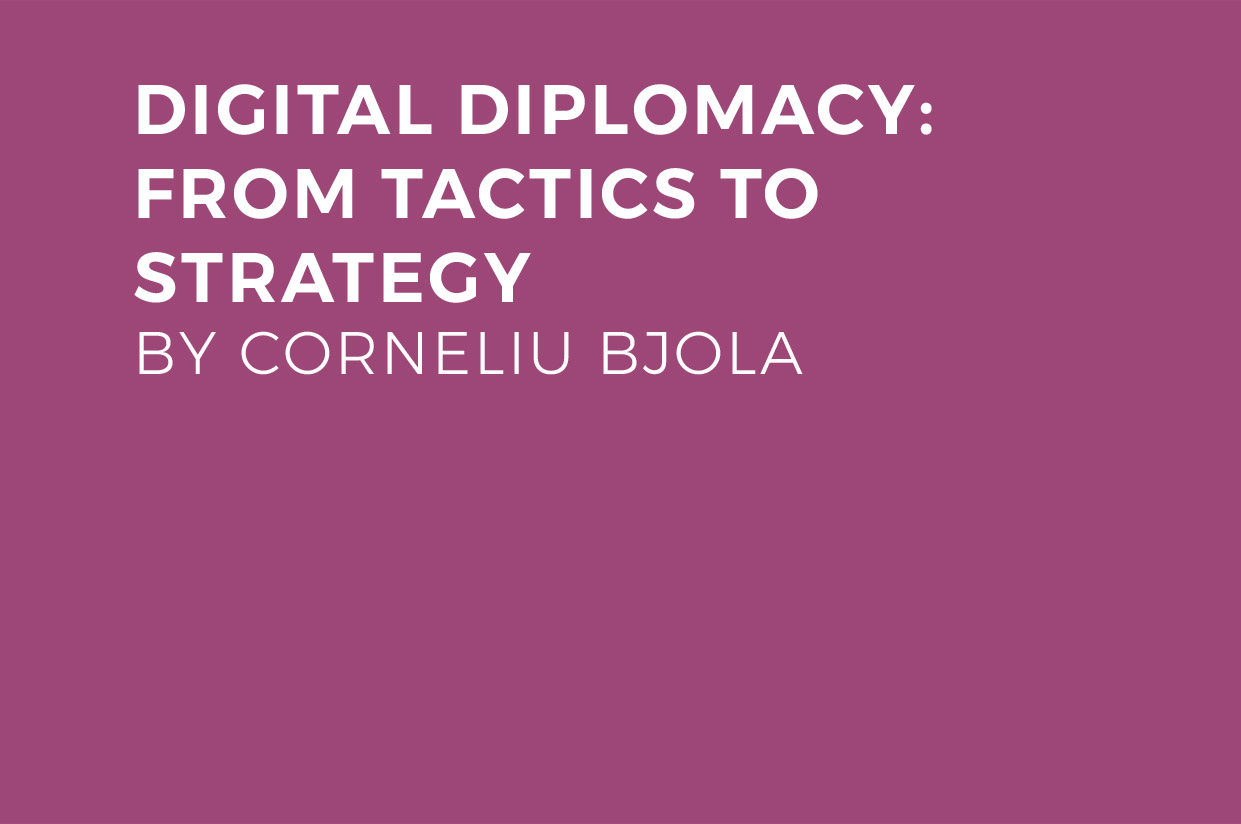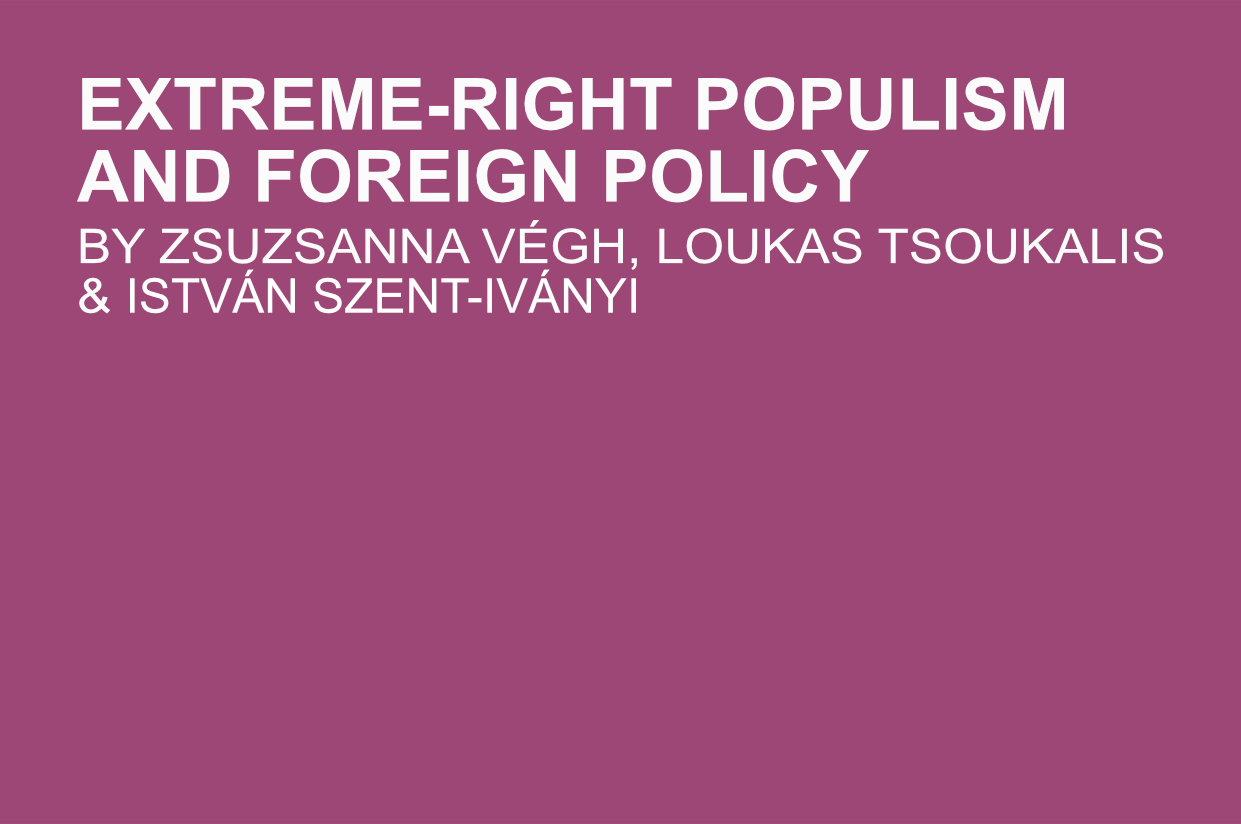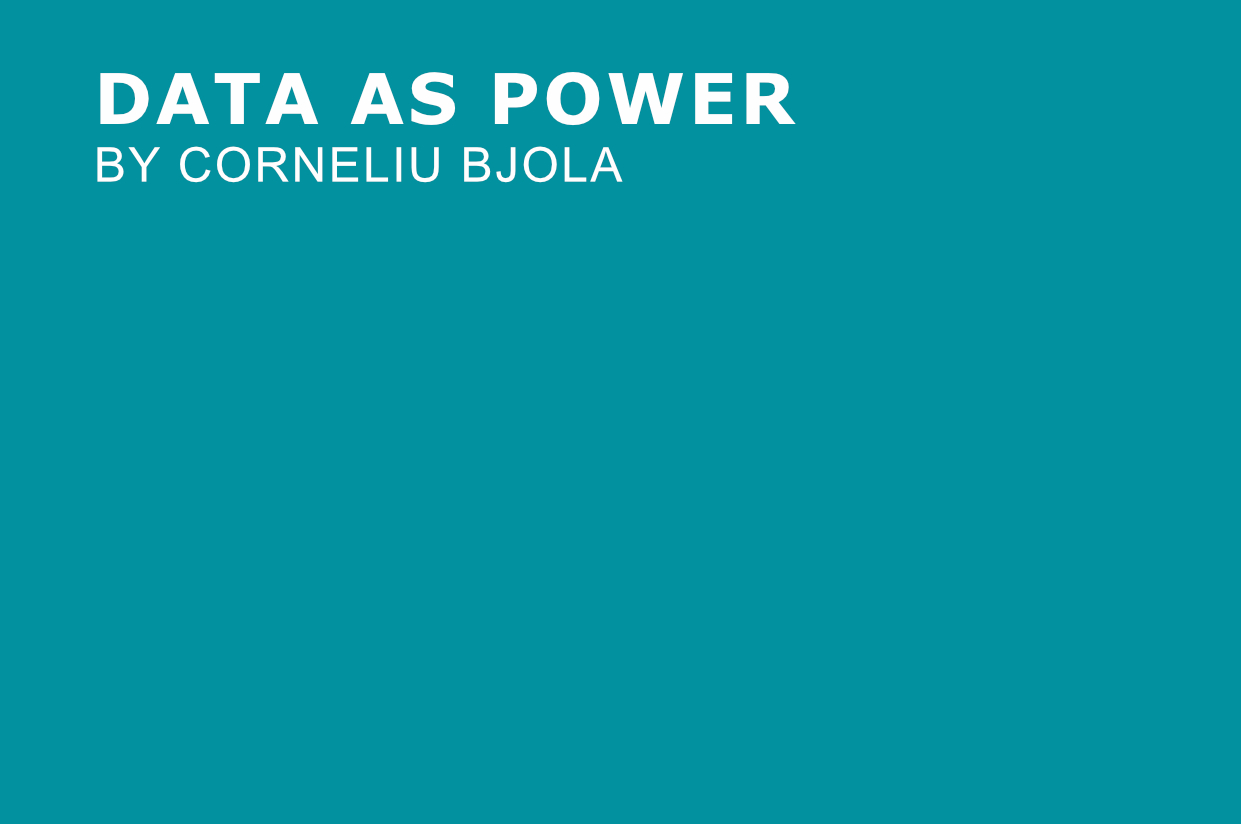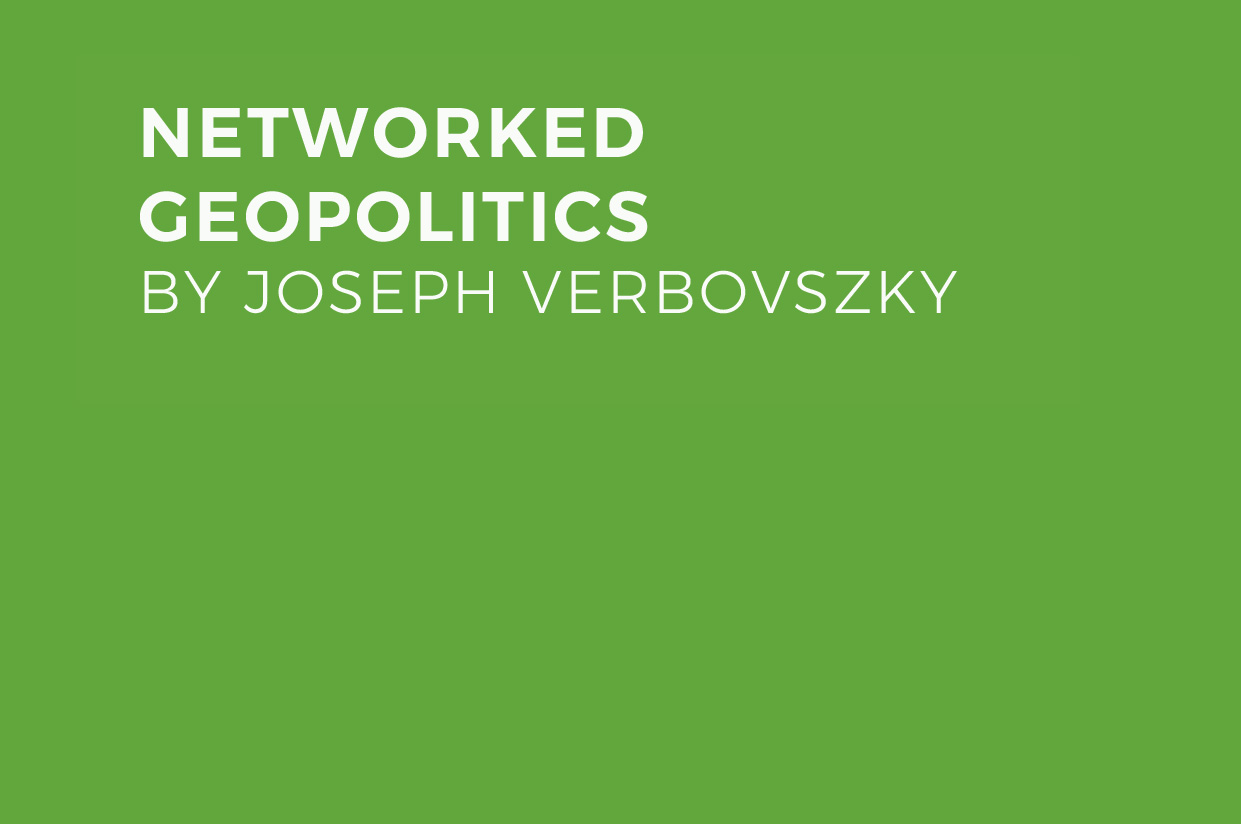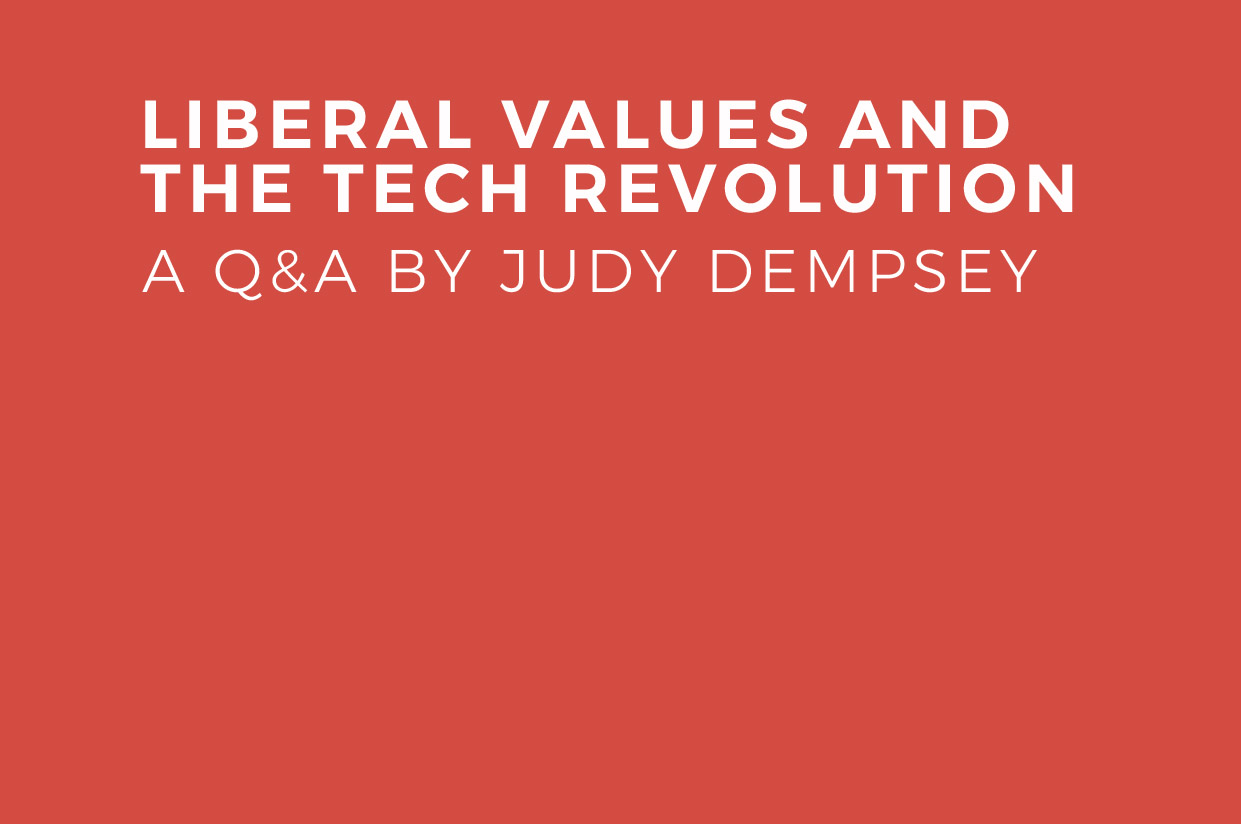
Liberal Values and the Tech Revolution
Three questions for four participants of the Holbrooke Forum’s Digital Diplomacy Project
By Judy Dempsey
I was fortunate enough to be invited to the Richard C. Holbrooke Forum’s “Digital Diplomacy Project: Power, Innovation and Order in a Networked World,” which was held in Tallinn, Estonia, from November 5-7, 2017. Hosted by the American Academy in Berlin, in cooperation with Estonia’s International Centre for Defence and Security, the seminar was remarkable for looking at diplomacy, information, power, and security through the prism of cyber warfare and digitization.
The event, which forms part of the Richard C. Holbrooke Forum Seminar was under Chatham House rules. But in the margins of the debates, I caught up with four of the participants who agreed to answer three identical questions in about 200 words each. These were the questions:
- How will the technological revolution change international affairs?
- Who will be in charge?
- How can the Western liberal-values space be protected?
Here are their answers.
Cathryn Cluever Ashbrook, Executive Director, The Future of Diplomacy Project, Harvard Kennedy School
How will the technological revolution change international affairs?
It challenges and disrupts the very definition and execution of state power. States no longer have the monopoly on security, violence, information, or on financial flows and currency. The earlier communications revolution emboldened non-state actors and challenged the individual state and multilateral institutions. The market-driven data revolution will go much further—and will do so at neck-breaking speed. Few Western foreign-policy institutions are designed to adapt and anticipate the challenges that accompany these changes. Democracies move slowly, consensus is creeping. Those with strongly defined national or corporate interests, resources, and strategy, such as Facebook and China, stand to gain disproportionally.
In state terms, China, with its large labor market increasingly geared toward building high-tech, and its strategic investment in technological innovation both at home at abroad—particularly in Silicon Valley—is pursuing the kind of “Twenty-First Century Statecraft” the US-architects of the concept could have only dreamed of. It deploys technology in defense, intelligence (including the systematic control of its own people behind the Great Firewall), and development to exert its global influence, and simultaneously extricates value from the openness of the West in its corporate strategies in the United States and Europe, while building support for its worldview through open channels (including the otherwise forbidden Facebook) based in Hong Kong.
In the West, governments have been far less interest-oriented in their responses, attempting first to “utilize” the tools of the communications revolution for democratization purposes, but losing out to rapidly advancing market interests, particularly in AI and big data. These uneven developments with respect to the manipulation of tech in the interest of the state will impact real and perceived relative power in international relations.
Who will be in charge?
Hierarchies demand authority. Now, networked interests rule. Who flourishes? Corporations are actively moving into state space, practicing digital colonialism for consumerism, particularly in Africa, where Facebook and Amazon have become increasingly large players, in the name of efficiency. The West’s tools of regulation will be insufficient. In the cyber sphere, reciprocity concepts, as applied in the nuclear nonproliferation context, could offer a model to limit incursion into state and corporate systems. The agreement between President Xi Jinping and President Obama on limiting attacks on corporate IP [international property] seemed to have tangible, if time-limited effects. Creating new models of trust-building and normative behaviors, on the one hand, and diplomacy-based tools for power-projection and arbitration will be urgently needed to frame this space, if regulation is no longer a realistic option.
How can the Western liberal-values space be protected?
There is no territorial or spatial way in which it can be protected. Reasserting influence of these values will be messy. And yet: values can only be safeguarded by being practiced at every level and their advantages being made evident. Conversations—and subsequent EU interventions—about the right to privacy in the online space have shown that considerable differences in values exist between transatlantic partners. Appealing to a sense of responsibility for the health and integrity of democracy, as seen in the Congressional hearings of Facebook, Google, and YouTube legal counsel, might generate a series of policy changes for these almighty platforms, but the efficacy and ultimate strength of liberal, democratic values will have to be borne out in practice: they must deliver physical security, opportunity for all, economic development, and community cohesion. That is their best defense.
Lucas Kello, Senior Lecturer in International Relations; Director of the Centre for Technology and Global Affairs; Co-Director of the Centre for Doctoral Training in Cyber Security, University of Oxford*
How will the technological revolution change international affairs?
We live in era of a technological revolution in security affairs. This is not the first time that societies and governments have dealt with such a transformation. But the revolution of cyberspace has several distinctive features that mark it as especially disruptive. The change unfolds at awesome speed, the scope of change affects almost all quarters of society and the economy, and the underlying technology is scientifically complex.
Previous experiences with technological revolution, such as the experience of strategic bombing or mechanized warfare, teach us that the offensive power of our weapons is less important than the adequacy of our doctrines to orient their use. That is, more important than our strategic hardware is our strategic software.
Yet strategic thinkers and security planners in the West struggle to make sense of basic problems of cyber and information security. We are working from the basis of “negative knowledge,” or misconceptions about the nature of cyber threats and mechanisms to defeat them. There are serious conceptual convulsions that make theoretical and strategic adjustment harder than if it involved merely the analysis of threats about which observers know nothing at all.
Let’s consider some of the main disruptive features of the contemporary technological revolution:
First, there is the nature of the technology itself. We are dealing with an intangible weapon—zeros and ones stored as electrons that can destroy machines or impair computer functions. Although information has long been a source of power, today it has become force itself. It is often very difficult even to detect the weapon’s existence. This obstacle complicates arms control, of which the chief prerequisite is arms verification.
Similarly, it can be very difficult to detect the weapons’ presence inside vital infrastructures. Security policy must start from the assumption that the most sophisticated adversaries already reside inside our most prized systems. This situation represents a reversal of the traditional security paradigm, whereby the chief aim of policy was to keep the adversary out.
Moreover, the weapons can cause serious political, economic, social harm without firing a single gun—that is, without entering into the realm of traditional war. This gives rise to the state of “unpeace,” or a middle spectrum of harmful action that is neither as destructive as acts of war nor tolerable like peacetime rivalries.
Who will be in charge? Are subversive actors a threat?
A second disruptive feature of cyber weapons concerns their empowerment of subversive players. In the nuclear realm, only a small number of mostly rational states possessed the weapons. Horizontal and vertical proliferation were both limited. Nuclear weapons today are not much different from the 1970s.
But one of the distinguishing features of weaponized code is its ease of proliferation—both vertically and horizontally. Here, it is important to distinguish three orders of disruption based on different types of players and the disturbance wrought upon their interactions:
One form of disruption originates from below the states system: that is, in chaotic universe of non-state actors. Although they do not hold the most powerful weapons, their capabilities are sufficiently powerful to disrupt the economic affairs of a small nation (we saw this in Estonia in 2007). Their motives, moreover, are often subversive of national and international order. Then there are the security providers—technology companies such as Apple and Facebook, who hold enormous influence in security affairs but whose interests may sometimes conflict with the interests of governments.
The technology also empowers revolutionary states: those who repudiate the basic goals of peace and stability in the international system. North Korea, for instance, repeatedly uses cyberspace to disrupt the political and economic affairs of other nations.
How can the Western liberal-values space be protected?
There is also disruption among supposedly “rational” states—major powers such as the United States, Russia, and China. Our adversaries are doctrinally ahead of the West. Russia in particular grasps two vital points: that it can use cyberspace to disrupt the political and economic affairs of democratic countries; and that so long as its actions do not cross the traditional threshold of war, the retaliation will likely not be severe. The root of our problem is that doctrines of security and deterrence inherited from previous eras set us up for inaction. Because acts of unpeace such as Russia’s hacking operations during last year’s US presidential election are not overtly acts of war, the instruments of foreign and defense policy enter a state of doctrinal paralysis. There is no clear prescription for punishment.
In conclusion, it is important to recognize that a revolution cannot be mastered unless it is recognized and understood. At present, Western security doctrines lag far behind strategic realities. We may never fully catch up in our thinking because of the constant and fast pace of technological change. Best we can at least aspire to not fall behind so quickly.
*Read more about the above questions in Lucas Kello’s book, The Virtual Weapon and International Order (Yale University Press, 2017).
Samuli Sirén, Founder & Managing Partner, Redstone
How will the technological revolution change international affairs?
International affairs are affected already, especially considering that elections can be manipulated through social-media campaigns. Every person can find their own truth in the internet, and governments have a major problem informing people as they used to. Now we see the crypto-currencies breaking the barriers of governments, central banks, and capital markets, which will further weaken the positions of elected governments. I wonder if decision makers have understood that the introduction of the crypto-rouble is a way for Russia to circumvent the sanctions?
Who will be in charge?
People and governments will still be in charge, but they have a different and a much smaller role.
How can the Western liberal-values space be protected?
The internet and social media already undermine our values. The technology is offering a platform for alternative movements and values, and they have used it very effectively. But these can also be used to power our traditional values, which means that preventive work and information sharing through these modern channels is important and a never-ending task.
Joseph Verbovszky, Strategic Analyst, RUAG Schweiz AG
How will the technological revolution change international affairs?
The biggest change we are likely to see will be a shift from a traditional geopolitics, based on balance of power, to networked geopolitics, based on the creation of political dependencies based on the flows of information, trade, finance, energy, people, and violence. While territory will still play a role, it will only be relevant to the degree that it provides control of these network flows. The new system of international politics will come to resemble a system of circulation or a network rather than a collection of nation states.
Internally, the new level of digitalization will affect the way we organize ourselves, communicate, and make decisions. These will be fundamental changes. Our social lives have already been deeply affected, as have been certain industries. The last organizations to adapt themselves to the digital revolution will most likely be those of government and military. New methods of social activism and grassroots organizing will threaten to make parliaments and ministries of foreign affairs obsolete. New threats will come through the flows of the network or along its periphery, leading to more intra-state rather than inter-state conflict. Current ROEs and military logistics are not designed for this.
Who will be in charge?
In the West, the private industry, particularly the tech industry, will play an increasing role. Likewise, new and existing social movements will use the digital platforms to gain momentum. The key is speed. Both the tech industry and users of the digital platforms can move much faster than the regulatory bureaucracies. A decisive point may come when certain tech companies have to decide submit to government regulation or side with their own constituents (user base). Net neutrality will be a significant theme in the short- to mid-term.
In states such as China and Russia, the state will remain mostly in charge. Both states have a relatively effective control over digital technology. China, so far, seems to be significantly more successful. The critical question is whether China can balance a closed digital system while still being a major contributor of the new-networked geopolitics
How can the Western liberal values space be protected?
We need a new narrative for the West (and I include Russia in this as well). We are currently trapped in the postwar narrative. The Americans are hunting dictators, the Russians are fighting the “fascists” where ever they can find them (or produce them, if need be), and the Germans cannot lead because they are still the bad guys in this narrative. The effects of this are clear. We are still fighting the last war and not prepared to face new challenges outside of our paradigm.
Digitalization meanwhile is spurring the creation of new values. In the Middle East, it has helped to reshape borders and a new narrative is in the process of being created. This upheaval of values is associated with the upheaval of governance structures. In the West, family structures, work–life balance and socialization are already in the process of upheaval. It is inevitable that our politics will also be affected. In the West, it will be a question of who creates the new narrative. Narrative creation is often chaotic and rarely peaceful.

